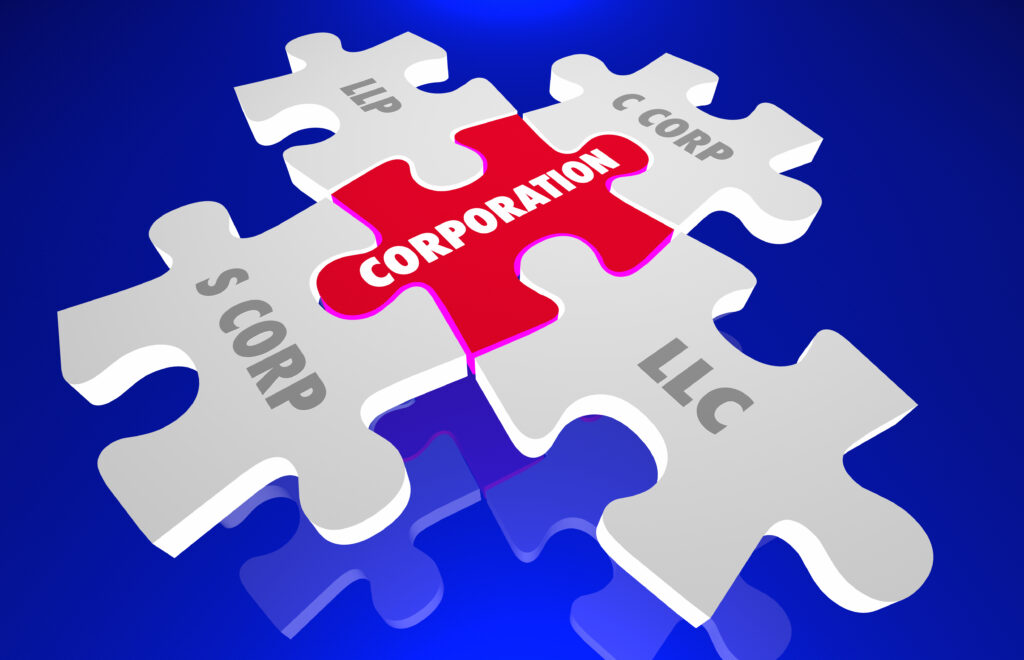Tax S-corporation

Saving Taxes with an S Corporation
An S corporation election allows the shareholders to preserve the benefit of limited liability for the corporate form while at the same time being treated as partners for federal income tax purposes.
Ever wondered why so many small businesses operate as an S corporation? Simple. An S corporation saves business owners big taxes in three separate ways:
Benefit #1: Passthrough Losses
First, as compared to regular corporations (sometimes called C corporations), S corporation owners can use the business’s losses incurred during the early lean years on the owner’s personal returns as deductions. For example, suppose a new S corporation suffers a $20,000 loss its first year and that the corporation is equally owned by two shareholder-employees, Sally and John. Sally and John each get a $10,000 business deduction on their individual tax returns because of the S corporation loss. This $10,000 deduction might save them each as much as $4,000 in federal and state income taxes.
Benefit #2: Lower Payroll Taxes
As compared to almost every other business form, S corporations can save their owners taxes from self-employment or Social Security/Medicare. Suppose, for example, that Andrew, Benny and Chris independently each own businesses that make $90,000 a year in profits. Each business owner may pay $13,000 in income taxes. However, that’s not the only tax they have to deal with. Each owner must also self-employment or Social Security/Medicare taxes.
For example, Andrew operates his business as an LLC and therefore pays 15.3%, or roughly $13,500, in self-employment taxes on his profits.
Benny operates his business as a C corporation which pays all of its profits to him as a salary. Accordingly, Benny (through his corporation) also pays 15.3%, or roughly $13,500, in Social Security and Medicare taxes.
Chris’s situation is different. Chris operates his business as an S corporation which means that Chris can split his $90,000 of profits into two payment amounts: salary and S corporation distributions. Suppose that Chris says only $40,000 of his profits are salary and takes the other $50,000 as a “dividend” distrbution. In this case, Chris pays the 15.3% Social Security/Medicare tax only on the $40,000 in salary. Therefore, Chris pays roughly $6,000 in Social Security/Medicare taxes—and annually saves $7,000 in taxes as compared to Andrew or Benny.
Benefit #3: No Corporate Tax
S Corporations also provide a third benefit in the tax arena because they don’t pay corporate income taxes. In other words, S corporations get to avoid the well-known “double-taxation” problem. However, the “no corporate income taxes” benefit often isn’t a savings for small corporations.
Suppose that two corporations each earn the same pretax profit of $100,000 and are owned by Ms. Davidson who pays the highest federal income tax rate of 35%. One corporation is an S corporation and the other is a C corporation.
The S corporation can distribute the entire $100,000 in profits to Davidson as dividends because there is no corporate income tax. Davidson then pays $35,000 in personal income taxes on the S corporation profits, which means she nets $65,000 in after-tax profits from the S corporation.
In comparison, the C corporation can’t pay the entire $100,000 in profits to Davidson. The C corporation first pays $22,250 in corporate income taxes. When the C corporation pays the remaining $77,750 to Davidson as a dividend, DaVinci pays another $11,663 in 15% “dividend” taxes on the C corporation profits. This means that Davidson nets roughly $66,000 in after-tax profits from the C corporation profits. In this case, DaVinci saves money with a C corporation in spite of having to pay the corporate income tax.
How to Get S Corporation Benefits
To create an S corporation and receive S corporation tax savings, you need to do two things: First, you must incorporate the business either as a regular corporation or as a limited liability company. Second, you need to make an election with the IRS to have the corporation or LLC treated as an S corporation. The S election is made with form 2553, available from the www.irs.gov web site. Note that some states (such as New York) require a separate state S election.
S corporations can save you thousands of dollars each year, but your tax savings can’t start until you elect S corporation status. If S corporation status saves you money, then every moment you delay will cost you hundreds of dollars!
Special thanks to Seattle CPA Stephen L. Nelson who contributed to this article. Nelson is the author of QuickBooks for Dummies and edits the S Corporations Explained web site.
We hope you found this article about “Tax S-corporation” helpful. If you have questions or need expert tax or family office advice that’s refreshingly objective (we never sell investments), please contact us or visit our Family office page or website www.GROCO.com.
To receive our free newsletter, contact us here.
Subscribe our YouTube Channel for more updates.

Alan Olsen, is the Host of the American Dreams Show and the Managing Partner of GROCO.com. GROCO is a premier family office and tax advisory firm located in the San Francisco Bay area serving clients all over the world.
Alan L. Olsen, CPA, Wikipedia Bio

GROCO.com is a proud sponsor of The American Dreams Show.

The American Dreams show was the brainchild of Alan Olsen, CPA, MBA. It was originally created to fill a specific need; often inexperienced entrepreneurs lacked basic information about raising capital and how to successfully start a business.
Alan sincerely wanted to respond to the many requests from aspiring entrepreneurs asking for the information and introductions they needed. But he had to find a way to help in which his venture capital clients and friends would not mind.
The American Dreams show became the solution, first as a radio show and now with YouTube videos as well. Always respectful of interview guest’s time, he’s able to give access to individuals information and inspiration previously inaccessible to the first-time entrepreneurs who need it most.
They can listen to venture capitalists and successful business people explain first-hand, how they got to where they are, how to start a company, how to overcome challenges, how they see the future evolving, opportunities, work-life balance and so much more..
American Dreams discusses many topics from some of the world’s most successful individuals about their secrets to life’s success. Topics from guest have included:
Creating purpose in life / Building a foundation for their life / Solving problems / Finding fulfillment through philanthropy and service / Becoming self-reliant / Enhancing effective leadership / Balancing family and work…

MyPaths.com (Also sponsored by GROCO) provides free access to content and world-class entrepreneurs, influencers and thought leaders’ personal success stories. To help you find your path in life to true, sustainable success & happiness. It’s mission statement:
In an increasingly complex and difficult world, we hope to help you find your personal path in life and build a strong foundation by learning how others found success and happiness. True and sustainable success and happiness are different for each one of us but possible, often despite significant challenges.
Our mission at MyPaths.com is to provide resources and firsthand accounts of how others found their paths in life, so you can do the same.
Planning With Cryptocurrency – Part III Minimizing the Tax Effect of Cryptocurrency Transactions
Planning with cryptocurrency continued… In my previous article, I covered how cryptocurrency is taxed and hard and soft forks. This article addresses different strategies for minimizing the tax effects of selling cryptocurrency. I will cover the following topics in subsequent articles: What happens if I contribute cryptocurrency to a partnership or corporation? What should I…
2020 IRA Contributions Extended To May 17
In Today’s Show:
1) Clarification: The deadline f…
Family Offices after the Era of COVID 19
Are family offices after the era of COVID 19 emerging stronger from the global pandemic? How are family offices reacting to the policies of the new US administration, both in the US and globally, in terms of their investment strategies and structures? With the acceleration of impact investing, led by the next-generation, are family offices…
The Biden Administration Corporate Tax Proposal
In Today’s Podcast:
1) The Biden Administration …



